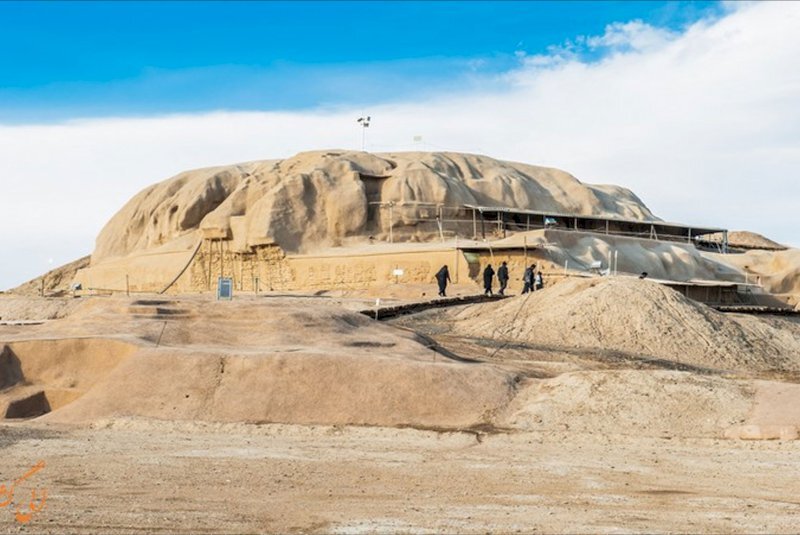Archaeologists tasked to reconsider Sialk Hills boundary

TEHRAN– A team of cultural heritage experts and archaeologists has been tasked with conducting extensive field research to verify the legal boundary of the magnificent Sialk Mound in central Iran.
“Sialk Hills is one of the most important hubs of civilization in Kashan and Iran. Due to this importance, determining the area and boundaries of this ancient site is the expertise of archaeologists and the final opinion must be announced by those experts,” CHTN quoted Isfahan province’s tourism chief as saying on Wednesday.
Ahmad Danainia reminded efforts underway to register the site in the UNESCO World Heritage list, saying “For the global registration of these ancient hills, its limits should be modified…”
Experts believe that Sialk is a treasure trove of information about diverse subjects such as palaeobotany, palaeozoology, palaeoanatomy, diet, climate change, and ancient metallurgy.
Situated halfway between Kashan and Fin in Isfahan province, Tapeh Sialk (“Sialk Hills”) has yielded interesting pottery pieces, metal tools, and domestic implements made from stone, clay, and bone that date from as early as the 4th millennium BC.
Several excavation projects at the site have so far been conducted, beginning with a 1933 French Louvre delegation led by Roman Ghirshman; capping with a most recent project in 2009, which was led by Hassan Fazeli-Nashli, a faculty member of the Archaeology Department, University of Tehran.
Many travelers opt to pass Kashan on their journeys between Tehran, Isfahan, Shiraz, and Yazd because this delightful oasis city on the edge of the Dasht-e Kavir is one of Iran’s most alluring destinations. Kashan not only boasts a cluster of architectural wonders, an atmospheric-covered bazaar, and a UNESCO-recognized garden, but it also offers some of central Iran’s best traditional hotels.
AM
